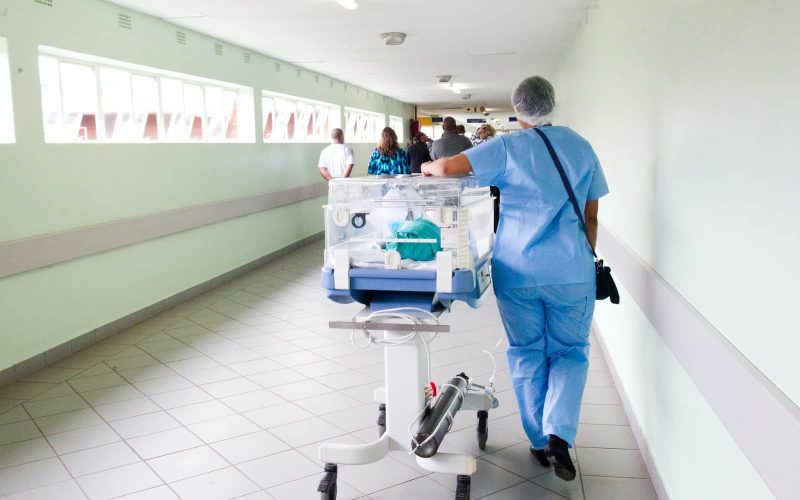Have you ever wondered about a hospital looking for a particular unit or entering the wrong department? Or you saw a unit and can’t understand what’s happening there.
Let’s learn about the different units in a hospital and their role in patient health.
What are Hospital Units?
A hospital unit refers to the various units in a hospital where patients receive specialized treatments and services. It is a collection of patients who share common characteristics.
This means that they have similar health issues, treatments, and outcomes.
For example, a patient who has undergone surgery would be part of the same unit as someone who had the same procedure done at another time.
Different Units in a Hospital
Here are some of the different units you can find in a hospital. So, when you’re in a hospital, you can understand the meaning of these terms when you see them.
Intensive Care Unit (ICU)
In the intensive Care Unit, patients who require intensive monitoring or treatment are admitted. This is usually done because the patient is critically ill or injured.
In some countries, such as Australia, Canada, New Zealand, and the United Kingdom, ICUs are also known as critical care units.
However, the goal of this hospital unit is to stabilize their condition and prevent further complications.
Cardiac/Coronary Care Unit (CCU)
The CCU is one of the different units in a hospital where patients who have heart attacks or other types of cardiovascular problems receive treatment.
If you need emergency medical attention for a heart problem, the nurses will likely take you to a CCU.
Patients usually stay at a CCU for several days until they recover from their condition.
Neonatal Intensive Care Unit (NICU)
Neonatal intensive care units provide medical services to newborn babies who are critically ill or premature.
You can find them in hospitals and private homes, and they offer specialized treatment for these infants.
In addition, they serve as teaching hospitals for doctors and nurses. These facilities are equipped with advanced equipment and trained staff.
Medical Intensive Care Unit (MICU)
Medical ICU is a part of critical care medicine that focuses on providing advanced life support to critically ill patients.
These patients often require constant monitoring and intervention from highly trained professionals.
Neurological Intensive Care Unit (NICU)
A neurological intensive care unit is a hospital ward where doctors treat patients suffering from traumatic brain injury, stroke, epilepsy, or other neurological disorders. These patients often require constant monitoring and treatment.
Emergency Room (ER)
An emergency room (ER) is where sick or injured patients come to get medical care.
ERs are a part of the different units in a hospital that provide immediate treatment for life-threatening conditions .
They provide immediate medical care such as diagnostic tests, such as X-rays, blood tests, and ultrasounds.
Most emergency room visits are preventable, meaning you can treat them at home. If you have a minor illness, you should see your primary care doctor instead of going to the ER.
Operating Room (OR)
The operating room is where surgeons perform surgery. An operating room should have the latest medical equipment and facilities. This ensures that patients receive the best care possible.
Post-anesthesia Care Unit (PACU)
After surgery or other procedures, patients often spend time recovering at the hospital. They stay in the PACU until they are well enough to go home.
Patients undergoing surgical procedures should receive adequate pain management during recovery. This helps them recover faster and reduces complications.
Trauma Intensive Care Unit (TICU)
A trauma ICU provides critical care to patients with blunt impacts such as car crashes and other impact-related accidents.
These units are usually located at major hospitals affiliated with large universities or teaching hospitals. They provide 24/7 coverage and offer advanced life support services.
Pre-Op
The term pre-op is short for pre-operative, meaning before surgery. Patients undergo extensive testing in this unit to ensure they are medically fit for surgery.
They also receive counseling from their surgeon and other healthcare professionals.
This is the time to prepare mentally and physically for the upcoming operation. Patients should know the risks involved and ask questions about the procedure.
Hospice Unit
This unit is also one of the different units in a hospital that provides comfort care to terminally ill patients.
Hospice care provides quality pain relief, symptom management, emotional support, spiritual guidance, and family counseling.
Floor Unit
A floor unit is a room where patients stay during their treatment. They usually have private rooms or shared rooms with other patients.
Floor units are typically designed for short-term stays, but hospital beds are available for sleeping.
Patients who require long-term care are moved into a regular room after they recover from their illness or injury.
Pharmacy
Pharmacy units are also known as drug dispensing services (DDS). Pharmacists usually operate this pharmacy unit, and the pharmacist dispenses medications to patients and provides other healthcare services.
Moreover, they provide a convenient way for patients to receive their prescriptions without leaving the hospital.
Hospitals often offer free prescription delivery services to patients who qualify.
This is because they want to ensure that their patients get the medications they need, even if they don’t have insurance coverage.
Laboratory
A laboratory unit in a hospital is a medical facility where doctors perform tests on patients. They provide diagnostic services to both inpatients and outpatients.
Lab technicians are trained professionals who specialize in performing medical tests.
They often deal with complex procedures that require extensive training and follow strict protocols to ensure accuracy.
Radiology
Radiology units provide services to patients who require diagnostic tests. Radiologists interpret images taken from these tests and then report their findings to doctors.
These doctors specialize in diagnostic imaging such as X-rays, ultrasounds, CT scans, and MRIs.
However, this job requires extensive training and experience.
Medical Records Unit
The medical records unit (MRU) is one of the units in a hospital responsible for maintaining patient files and other information related to patient health care.
They also order tests and medications, schedule appointments, and bill insurance companies.
Conclusion
I hope it’s easier for you now to identify the different units in a hospital and understand their various duties and contributions to maintaining your general health.




